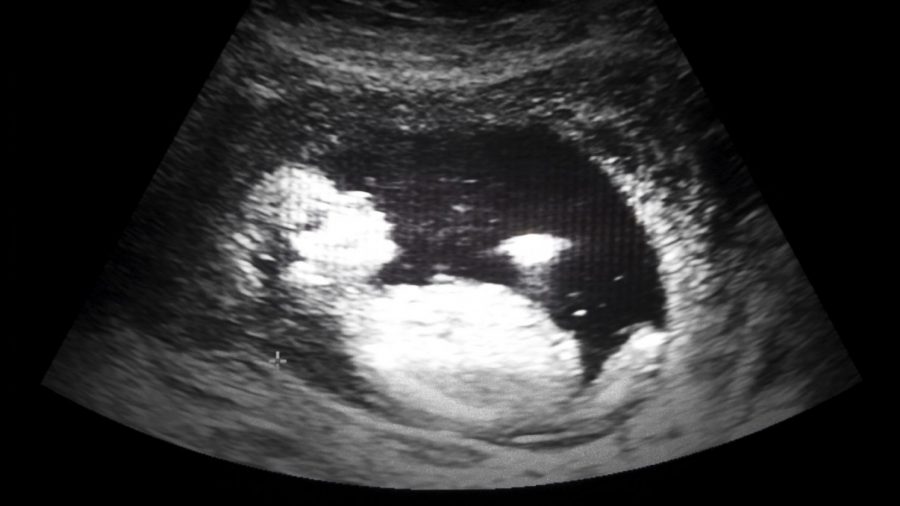A research lab at the University of California San Diego was recently accused by a pro-life group of attempting to obtain “fresh” hearts and pancreas from aborted babies.
“Apparently the government-funded laboratories at @UCSanDiego are so greedy for ‘fresh’ aborted baby body parts, they will try to buy them from ANYBODY–even without bothering to check who they are emailing. @HHSGov please STOP this now!” The Center for Medical Progress said in a tweet on May 14.
In an email thread released by the Center for Medical Progress, a postdoctoral researcher named Agnieszka D’Antonion-Chronowska was quoted as seeking a fetal pancreas for the Frazer Lab at the University of California San Diego School of Medicine.
Apparently the government-funded laboratories at @UCSanDiego are so greedy for “fresh” aborted baby body parts, they will try to buy them from ANYBODY–even without bothering to check who they are emailing. @HHSGov please STOP this now! #PPSellsBabyPartshttps://t.co/oQDqRcxlK9 pic.twitter.com/8vM7S2o47d
— CMP (@CtrMedProgress) May 15, 2019
“We are searching for human fetal pancreas tissue from 4-5 donors for a single cell RNA-seq expression comparative analysis,” D’Antonion-Chronowska wrote, according to the document. “Optimal age of donors should be between 4-8 weeks of embryonal development however we understand that this is a very early stage, therefore we are also interested in any other available embryonal stage.”
“The single cell RNA-seq assay requires fresh, live cells,” the researcher continued.
A separate email also showed D’Antonion-Chronowska inquiring into the cost of getting three hearts specimens, stating that they would like the samples from the same donor.
Their communication continued from April 1 to May 6.
The bio on the school website indicates that D’Antonion-Chronowska has been involved in the Frazer Lab at the pediatrics department of UC San Diego School of Medicine since 2014. The lab specializes in genetic studies of human stem cells, and the role of gene expression in human disease such as cancer.

The University of California collectively received $3.3 billion in federal funding in 2018—an increase of $43 million compared to the previous year, according to the 2018 financial audit (pdf). The San Diego campus received around $20 million in research grants from the National Institutes of Health for the 2019 fiscal year. The University of California San Francisco also provide training for abortion providers through Bixby Center, which received over $18.9 million of government funding in the 2016 fiscal year alone (pdf).
An email inquiry to the University of California San Diego was not immediately returned.
Abortions in California
In California, abortion is allowed up to the point when the fetus is viable—meaning that the baby can survive outside the mother’s womb, which is usually around 24 to 28 weeks after conception.
At the donor age that the researchers were trying to source, a fetus would likely already have a regular heartbeat—usually present from week 6—and the hands and feet would have developed into “little paddles,” according to the U.S. National Library of Medicine.
According to data from the Centers for Disease Control and Prevention, as of 2015, 85.7 percent of women who went through an abortion were unmarried, 45 percent were 30 years old or younger, and over one fourth were black. Another 11.2 percent were Hispanic, while 6.8 percent were white.
California has not reported on the number of legal abortions performed in the state since 2014.
While states such as Kansas, Misssissipi, Ohio, Alabama, and Georgia have been pushing for stricter abortion laws, such as banning the procedure once there is a fetal heartbeat, California has been pulling in the opposite direction.
Senate Bill 24, called the College Student Right to Access Act, introduced on May 20, is the latest pro-abortion moves in the state and if passed, would require 34 public universities in California to provide “availability of abortion by medication techniques” on campus. It would also allocate over $10 million in funding toward student abortions by 2020.
“When pregnant, young people decide that abortion is the best option for them. Having early, accessible care can help them stay on track to achieve their educational and other aspirational life plans,” according to the bill.
Alabama Moves to Protect Sanctity of Life
Alabama Governor Kay Ivey signed The Alabama Human Life Protection bill (pdf) into law on May 15. Under the act, nearly all abortions are a felony, with the exception of when a pregnancy puts the prospective mother’s life is at risk.
Ivey said that the legislation was a reflection of the values held by residents in Alabama.
“The Legislature has spoken,” Gov. Ivey said. “It underscores the sanctity of life the people of Alabama value so highly.”


